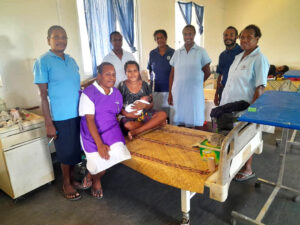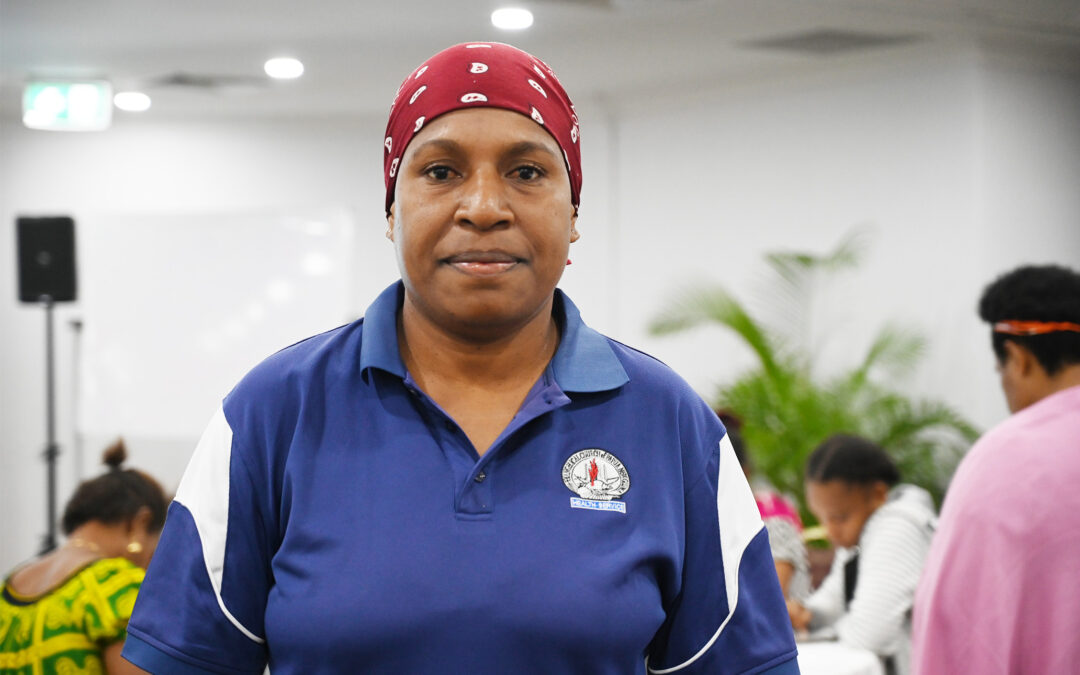Annie Ove is the only midwife working in the labour ward at Balimo Hospital alongside six community health workers and a male nurse. She says that they attend to five to six deliveries in a day, while two to three mothers deliver at home or on their way to the hospital.
“I find joy in myself if I do a procedure and it turns out successful and the mother and the baby are well,” she says.
Annie started working in the Balimo Hospital labour ward as a nurse in 2017, when there was no midwife. She was the only nursing officer among the community health workers.
Much of the landmass is surrounded by water, making it difficult for women who are due to give birth to get to the hospital. The only transportation is by water, with MAF planes only helping in emergency referral cases.
“The referral takes time, and some mothers with complications have died while waiting for referral. Some have died while travelling,” says Annie.

Annie (purple), CHWs, male nurse and a mother with baby. This was a successful retained placenta case.
Annie became a midwife so she could assist women with complications rather than referring them.
“When I saw the Australia Awards PNG scholarship to study midwifery, I applied for it with the help of my husband, and I came to study at Pacific Adventist University in 2021,” she says. “Thank you, Australia Awards PNG, for the scholarship and the knowledge that I gained. I am using every skill I learned.”
Annie graduated in 2022 with a Bachelor of Midwifery and returned to the hospital with a new set of skills and greater knowledge to tackle the challenges. She was one of more than 900 Papua New Guinean midwives who have received midwifery kits under this scholarship program since 2012. “All the instruments that I need were provided with the midwifery kit. I’m using it here. It’s very handy for me,” says Annie.
She says that they used to refer obstetric emergency cases before, but she is now able to attend to women in emergency situations, such as those with a retained placenta. She explains, “A retained placenta is when the placenta can’t expel itself naturally after a woman gives birth, so it has to be done manually.”
Miliyato Ulisiwa, one of the community health workers, says, “Annie is a very good midwife and a reliable worker. She passes on her knowledge and tells us what to do. She attends to the complications, which we were unable to in the past. We are very happy that we got a midwife who can help us.”
Apart from her usual duty as a midwife, Annie initiated a school awareness program where she educates students about sexual health.
“If nurses want to take up midwifery, this is a great opportunity. I benefited most from the scholarship, and I thank Australia Awards for that. I have everything in hand to do my work. If anyone would like to apply, I recommend this scholarship to you,” says Annie.
